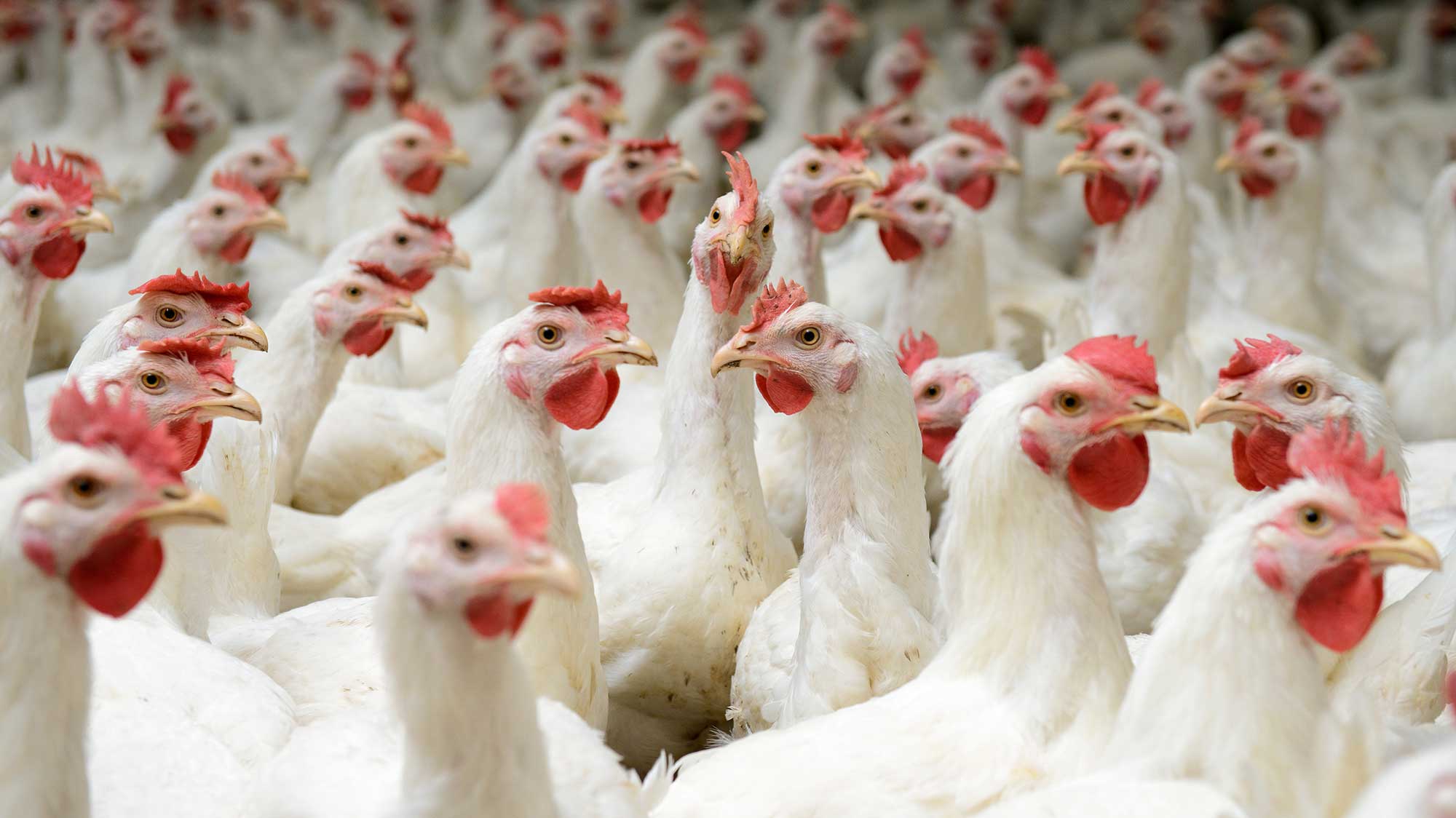Welcome to DU!
The truly grassroots left-of-center political community where regular people, not algorithms, drive the discussions and set the standards.
Join the community:
Create a free account
Support DU (and get rid of ads!):
Become a Star Member
Latest Breaking News
General Discussion
The DU Lounge
All Forums
Issue Forums
Culture Forums
Alliance Forums
Region Forums
Support Forums
Help & Search
The Price-Fixing Scandal Rocking Big Chicken
The Price-Fixing Scandal Rocking Big Chicken
Multiple lawsuits allege that top poultry companies colluded to make broilers more expensive.
 ?w=990
?w=990
The biggest poultry processors in the United States face widespread allegations that they colluded to raise prices over the course of 10 years in the $30 billion broiler chicken market. In just three weeks, two grocery retailers and the country’s two biggest food distribution companies filed lawsuits against Tyson Foods, Perdue Farms, Pilgrim’s Pride, Koch Foods, Sanderson Farms, and others. The complaints all allege that since 2008, many top poultry companies have engaged in a price-fixing conspiracy, assisted by information-sharing software. Consequently, suppliers and retailers argue that they paid too much for chicken—a burden that has likely been felt by consumers, too.
The broiler chicken market comprises virtually all chicken consumed in the United States. Historically, broiler chicken was priced on a boom-and-bust cycle — when prices for chicken went up, so did supply; then prices would fall. Craig Watts, a former Perdue farmer, said in an interview that “prior to 2008, the chart [of broiler prices] was like an EKG.” But then, as Watts puts it, “it’s been boom for the past 10 years or so.” Plaintiffs in these lawsuits allege that starting in 2008, prices for chicken suddenly stabilized and began to rise, even as the inputs those companies sold to farmers fell. They allege that this stabilization was a result of collusion among the companies, made possible in part by a piece of database software called Agri Stats.
Through Agri Stats, poultry companies can share information about production numbers, bird sizes, financial returns, and more. The database company gathers information from 95 percent of poultry processors and tracks 22 million birds a day. Companies can then use this information, according to farmers, retailers, and distributors, to set a higher price for their products. In a 2017 report on Agri Stats, Bloomberg found that between 2009 and 2016, Tyson’s operating margins grew from 1.6 percent to 11.9 percent. At Pilgrim’s Pride, between 2012 and 2015, operating margins grew from 3.8 percent to 12.77 percent.
The first lawsuit brought against the processors was a class action filed by a food wholesaler, Maplevale Farms, in September 2016. That suit alleged that from 2008 onward, Tyson and Pilgrim’s Pride coordinated their efforts to reduce their broiler stock and forced a “nearly 50 percent increase in Broiler wholesale prices since 2008, despite input costs (primarily corn and soybeans) falling roughly 20 percent to 23 percent over the same time period.” Maplevale claimed that consequently, it paid inflated prices for chicken over the course of several years. Following that class action, other supply chain actors began to take their stand against the processors. Several farmers filed a class action lawsuit against Tyson, Pilgrim’s Pride, Perdue, Koch, Sanderson, and others in January 2017, alleging that the processors had acted as a cartel and used information from Agri Stats to keep farmers’ wages down. In April 2017, Chicken Kitchen, a restaurant franchiser, brought a similar lawsuit against Tyson Foods, alleging that the company had “conspired to fix, maintain, and stabilize the price of Broilers by limiting production with the intent of increasing Broiler prices in the United States.” On January 12, the Southern supermarket chains Winn-Dixie and Bi-Lo filed suit against Koch Foods, Tyson, Pilgrim’s Pride, and others alleging that the processors had restricted supply in order to keep prices high. US Foods and Sysco followed with their separate lawsuits on January 30.
. . . .
https://www.motherjones.com/food/2018/02/chicken-poultry-price-broilers-tyson-perdue-lawsuits/
InfoView thread info, including edit history
TrashPut this thread in your Trash Can (My DU » Trash Can)
BookmarkAdd this thread to your Bookmarks (My DU » Bookmarks)
5 replies, 1442 views
ShareGet links to this post and/or share on social media
AlertAlert this post for a rule violation
PowersThere are no powers you can use on this post
EditCannot edit other people's posts
ReplyReply to this post
EditCannot edit other people's posts
Rec (4)
ReplyReply to this post
5 replies
 = new reply since forum marked as read
Highlight:
NoneDon't highlight anything
5 newestHighlight 5 most recent replies
= new reply since forum marked as read
Highlight:
NoneDon't highlight anything
5 newestHighlight 5 most recent replies
The Price-Fixing Scandal Rocking Big Chicken (Original Post)
niyad
Feb 2018
OP
Wellstone ruled
(34,661 posts)1. About time,all one needs to know is,
Check your local Grocery Ads. Notice the Prices,funny how they new change only by a penny or two,no matter which Retailers Ads.
With the glut of Corn,Soybeans and Oats and Wheat stored on the Farms,Poultry should be dirt cheap.
niyad
(113,315 posts)2. so very true.
Wellstone ruled
(34,661 posts)3. Fryer Chickens should be a Buck a Pound
or less. Who are they kidding.
But,anytime you can get Protein at two bucks a pound or less,you have scored.
niyad
(113,315 posts)4. eggs are cheaper
but my supermarket often has thighs, etc, for 99 cents a pound.
Wellstone ruled
(34,661 posts)5. And the price
comparator should reflect the retail of Fresh Chicken. Saw large eggs at 89 cts a dozen at Winco last week. And 18 ct large @1.29 next to it.